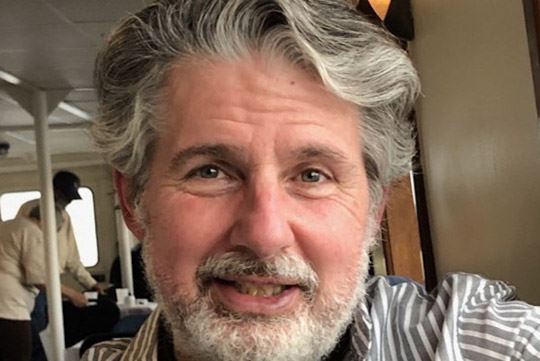I’m back to doing the things I love, and my running pace is about where it was two years ago.

After open-heart surgery at CBMC, 60-year-old Brian Scully is back to his active lifestyle. He even ran the New York City marathon just six months post-op.
Brian Scully is an avid runner. But in 2019, his running started to decline—he needed to take frequent breaks or stop completely and could barely run around the block. Coincidentally, at a trip to urgent care for a sinus infection, Brian was diagnosed with a heart murmur and was referred to a cardiologist, who diagnosed his condition as a moderate bicuspid aortic valve. A recommended six-month follow-up turned into a year due to COVID, at which point his condition had progressed from moderate to severe, and surgical intervention was required.
Enter Arash Salemi, M.D., cardiothoracic surgeon at Cooperman Barnabas Medical Center (CBMC) and clinical chairman of cardiothoracic surgery at RWJBarnabas Health—Northern Region. Originally, the now 60-year-old was considered a candidate for TAVR, a minimally-invasive transcatheter aortic valve replacement. But after undergoing more tests such as an echocardiogram which uncovered more calcification on the valve than expected, Dr. Salemi recommended open-heart surgery.
“I was put off a bit, to put it mildly,” Brian says. “I was hoping for TAVR and was scared at the prospect of open-heart surgery.” But thankfully, the Bloomfield native says, Dr. Salemi put him at ease. “He allayed those fears as much as anyone could have, and told me I would be able to run again sooner than I expected.”
In fact, a few weeks after his surgery in April 2021, Brian started training for the New York City Marathon. “I started training first on my own, walking a few weeks after surgery and eventually jogging,” he says. By six weeks post-op, Brian switched from walking to running, and joined an endurance program through Fleet Feet Montclair for twice-weekly speed training. However, Brian still trained at his own pace. “I was afraid of my heart rate getting too high,” he says. “So, I trained within my own parameters and I wasn’t trying to keep up with anybody else.”
His hard work paid off. Brian stuck to his training regimen and amazingly, he was able to complete the marathon that November, only six months after surgery. “I’m glad I did it and it’s an incredible accomplishment to come back so quickly, but I went too fast too soon and feel that if I had to do the race over again, I could’ve done it better,” he jokes. Still, the father of three says, this surgery he did at CBMC was a game-changer, and his race times are now on par with where they were before learning of his heart condition. “I’m back to doing the things I love, and my running pace is about where it was two years ago,” he says.
Dr. Salemi is not surprised. “Brian is exactly the type of patient we like to see in the office—optimistic and motivated to do well. While he was initially disappointed that we were going to go the open route, he understood the bigger picture. Given the heavy calcification of his valve and the fact that it was congenitally bicuspid, we felt this was the best approach. I also knew he was in great shape and would recover very quickly.” When asked if this is standard treatment for patients such as Brian, Dr. Salemi said, “We take a very individualized approach to patient care here at CBMC. There’s no one-size-fits-all. We customize our therapies to achieve the best outcome for each patient.”
Brian has follow-up appointments with his cardiologist every six months, and certainly continues to keep running. “I want to share my story with people to give them inspiration, but I don’t want [my surgery] to define me,” he concludes. “I want to go back to being just a runner and not the runner who had open-heart surgery.”
Learn more about the Department of Cardiac Surgery at Cooperman Barnabas Medical Center.